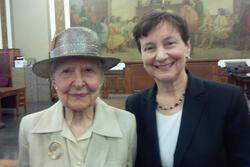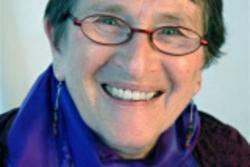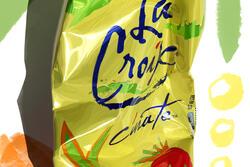My Intersectional Feminist Queen, Ilana Wexler
“Madonna, Rihanna, Ilana!” That’s just one of the many unique jingles enthusiastically sung by none other than the ultimate feminist, Jewess, and queen: Ilana Wexler. Wexler, the fictional character from Comedy Central’s hit series Broad City, embodies every aspect of what it means to be a badass, world-changing, intersectional feminist.
For those of you who don’t want to spend any of your precious time googling what “intersectional feminism” means, I’ll sum it up here just for you. According to the International Women’s Development Agency (IWDA), “...intersectionality encompasses more than just the intersections of race and gender. It’s now widely used to illustrate the interplay between any kinds of discrimination, whether it’s based on gender, race, age, class, socioeconomic status, physical or mental ability, gender or sexual identity, religion, or ethnicity.” In simpler words, it is a specific type of feminism that takes into account the nuance and complexity of identity, and the many different layers it contains. Intersectional feminism tries to recognize ALL aspects of women’s identities and consider their impacts in terms of power and privilege. For example, a Latina lesbian will not only be discriminated against because of her gender, but also because of her sexual orientation and race.
For much of its existence, the feminist movement focused mostly on the discrimination faced by white, middle-class women, thus failing to be totally inclusive. The term “intersectional feminism” was only coined about 30 years ago, by professor and activist, Kimberlé Crenshaw, so in some ways it’s a fairly new concept, although conversations about these issues far pre-date the term itself.
Although it’s challenging to portray intersectional feminism in a light-hearted and humorous way, Broad City manages to do it, and embraces Crenshaw’s theory boldly, eccentrically, and wickedly ridiculously. Ilana Wexler, one of the show’s main characters, is what I would call the ultimate feminist. Whether she’s positively hyping up her best friend Abbi’s “hot bod,” reclaiming the word “bitch,” completely embracing her sexuality and not-so-perfect life, or smashing society’s beauty standards by completely rocking body hair, Wexler is unapologetically bold, hilarious, and both subtly and not-so-subtly fighting the patriarchy.
Now one may ask, is Ilana Wexler indeed an intersectional feminist? And the answer to that question is 100% yes! Through each adventure she experiences with her bff, or boyfriend, or roommate, or love-interest at the time, she looks at life through an intersectional lens. Ilana outwardly supports the LGBT community and happens to be a member as well. She accepts and recognizes the struggles women of color and women who belong to different religions, constantly acknowledges minorities as a bold liberal, and makes an effort to diversify her social circle. Additionally, Ilana is not afraid to shed negative light on bigotry, as she explicitly expresses hatred for our current president—his name is even bleeped out throughout all of Season 4.
Despite all of this, it’s also important to note that Ilana isn’t perfect. For instance, one of her signature looks on the show are big gold hoop earrings that say the word “Latina.” During an episode in season 3, Jaime, Ilana’s roommate, heartwarmingly calls Ilana out for culturally appropriating. He says, “It's almost like you are stealing the identity from people who fought hard for it against colonial structures." Ilana immediately feels remorseful, recognizing that she’s wrong, and pledging to be more aware. This is just one example of how Ilana teaches us that being imperfect is acceptable, but that it’s also necessary to recognize our mistakes, and change our ways.
As a young feminist who’s constantly learning, growing, and furthering my curiosity, I find it crucial to surround myself with and look up to women who are unapologetically feminist. Whether I’m following in the footsteps of my feminist mom by embracing my body-type no matter what society tells me, or religiously watching Broad City, I have empowering role models all around me. While Ilana Wexler is fictional, her character’s intersectional attitude and outlook on life has helped shape me into the woman I am today.
This piece was written as part of JWA’s Rising Voices Fellowship.







